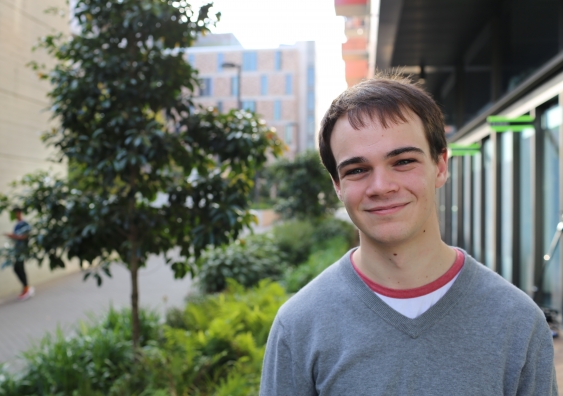A passion for health and advocacy
He may be the first medical student to serve as the chair of UNSW's student organisation, but Tom Morrison says health and advocacy go hand in hand.
He may be the first medical student to serve as the chair of UNSW's student organisation, but Tom Morrison says health and advocacy go hand in hand.

Though he was born and raised in Canberra, Tom Morrison never really considered himself a political animal.
Fascinated by crime and the legal system, he contemplated entering the police force or studying law, but a talk by Brendan Nelson – a long-serving Howard government frontbencher and a former president of the Australian Medical Association – fired his imagination.
Morrison’s father, a Naval officer, wanted him to enrol in the Australian Defence Force Academy, but the more he explored a career in medicine the more “I realised it was probably the best fit for me.”
“You get to do some science, which is fun and always something that I enjoyed, you get to work with people, and hopefully you get to do something meaningful,” says Morrison, now in his fifth year at UNSW Medicine.
“I love it, and to be honest, I can’t imagine doing anything else.”
Thinking back to the talk by Brendan Nelson, Morrison says his career as a medical doctor wasn’t the only aspect that appealed – he was also excited by the prospect of combining a passion for health with advocacy in areas such as policy, governance and leadership.
In his second year at UNSW, friends encouraged him to run for a directorship on the board of Arc, a student-run not-for-profit responsible for all facets of extra-curricular life – from sport and clubs and societies to advocacy and volunteering.
In 2015 he was elected Arc Chair, a role he is relishing despite the demands on his time.
“I think I’m the only med student to ever hold this position, and there probably won’t be another one for quite a while, going with the odds,” he says.
“But I’m really lucky because our team of staff is really good, I’ve got a lot of administrative support behind me in my day to day role.”
Morrison recently travelled to the United States to represent UNSW at the Universitas 21 student leaders’ summit.
It was a welcome break from his medical studies and offered Morrison a fascinating insight into how student organisations are run across the globe.
In the UK, for example, student chairs are expected to take a year off their studies to focus on their leadership role, while in Amsterdam student organisations are integrated into local government, giving students a vote in matters pertaining to the university and even veto rights which can be enforced by a court.
“It was really interesting just to sit down in a no-pressure environment and say this is what we do, this is what you do,” says Morrison.
What Morrison thinks has been one of Arc’s proudest achievements has been to mandate greater gender balance on the board, following a three-year constitutional battle that was finally settled earlier this year.
Two of the four directors elected annually to Arc now have to be women.
“That was a good win,” he says. “When it takes so long it makes it better, in a way.”
Once his term as Arc Chair finishes in June, Morrison plans to focus – for now – on his studies.
“I’ll still be a director for a year, but I was thinking I might do a bit of medicine,” he laughs.
“I’ve done this sort of stuff, with varying degrees of intensity, for quite a while, and I’m kind of looking forward to just stepping back a little bit.”
At the end of this year he will travel to South Africa for an elective at a trauma hospital, combining his interests in surgery and emergency medicine.
Though he’ll be easing back on his advocacy, Morrison will continue to lead as an independent director of the Australian Medical Students’ Association (AMSA), the peak body representing the country’s medical students.
He is fascinated by politics (observing the US election campaign on his recent U21 trip was a highlight) but doesn’t see himself as party political or a future parliamentarian.
“I don’t think I’d have as much fun doing that kind of stuff as I would within medicine,” he says.
“Health’s my big passion. I think you can make a lot of positive impacts there and it’s the kind of thing that has to come first.”